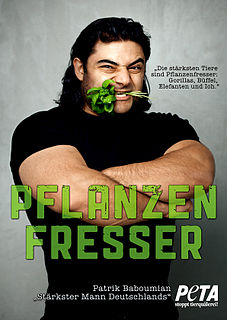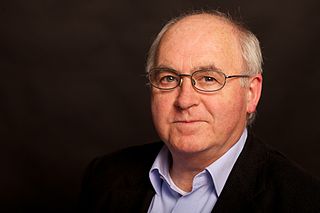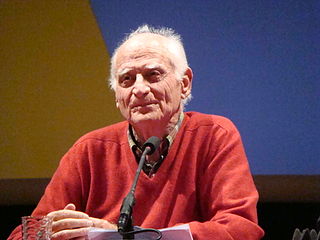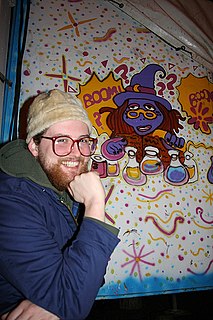Top 683 Defines Quotes & Sayings - Page 12
Explore popular Defines quotes.
Last updated on December 4, 2024.
If I've learned anything in twenty-nine years, it's that every human being you see in the course of a day has a problem that's sucking up at least 70 percent of his or her radar. My gift - bad choice of words - is that I can look at you, him, her, them, whoever, and tell right away what is keeping them awake at night: money; feelings of insignificance; overwhelming boredom; evil children; job troubles; or perhaps death, in one of its many costumes, perched in the wings. What surprises me about humanity is that in the end such a narrow range of plights defines our moral lives.
A little criticism makes me angry, and a little rejection makes me depressed. A little praise raises my spirits, and a little success excites me. It takes very little to raise me up or thrust me down. Often I am like a small boat on the ocean, completely at the mercy of its waves. All the time and energy I spend in keeping some kind of balance and preventing myself from being tipped over and drowning shows my life is mostly a struggle for survival: not a holy struggle, but an anxious struggle resulting from the mistaken idea that it is the world that defines me.
There was this famous clash of civilization thesis from Samuel Huntington, a political theorist. And the idea was that Western civilization is at war with Islam and maybe some of the other civilizations around the world. And I don't agree with that. But I do think there is such a thing as Western civilization. I think it starts with the Greeks and the Romans. Then it goes through the Enlightenment - or the Reformation, the Enlightenment. It goes through the scientific age. And it somewhat defines some of the cultures and mores of Europe and North America and some other countries.
Some street jokes are just timeless. There's an old street joke about comedians. The joke is that a beautiful girl comes up to a comedian at the end of the night and says, "I saw your show tonight, and I just loved it. I want to go home with you, and I'll do anything you want." And the comedian says, "Were you at the 7 or the 9?" That's just a perfect joke, because it points out how egomaniacal and obsessive comedians are. Even though I'm not waiting for a groupie, I can completely understand it. It just defines how comedians are driven.
The gospel of submission, commitment, decision, and victorious living is not good news about what God has achieved but a demand to save ourselves with God’s help. Besides the fact that Scripture never refers to the gospel as having a personal relationship with Jesus nor defines faith as a decision to ask Jesus to come into our heart, this concept of salvation fails to realize that everyone has a personal relationship with God already: either as a condemned criminal standing before a righteous judge or as a justified coheir with Christ and adopted child of the Father.
Arguably the most important parallel between mass incarceration and Jim Crow is that both have served to define the meaning and significance of race in America. Indeed, a primary function of any racial caste system is to define the meaning of race in its time. Slavery defined what it meant to be black (a slave), and Jim Crow defined what it meant to be black (a second-class citizen). Today mass incarceration defines the meaning of blackness in America: black people, especially black men, are criminals. That is what it means to be black.
Our federal income tax law defines the tax y to be paid in terms of the income x; it does so in a clumsy enough way by pasting several linear functions together, each valid in another interval or bracket of income. An archeologist who, five thousand years from now, shall unearth some of our income tax returns together with relics of engineering works and mathematical books, will probably date them a couple of centuries earlier, certainly before Galileo and Vieta.
Fear is just part of our DNA and our make-up. By definition, if we've had to be looked after for two years, it means we can't do it on our own and we need other people. That makes trust enormously important and it makes fear massive. Massive fear and trust issues really just defines us. The partner to belief is truth. If we're being fed lies, that's so powerful. And then, when we realize we're being lied to, it's going to make us really angry.
Strength must build up, not destroy. It should outdo itself, not others who are weaker. Used without responsibility, it causes nothing but harm and death. I can lift the heaviest weights, but I can not take the responsibility off my shoulders. Because the way we use our strength defines our fate. What traces will I leave on my path into the future? Do we really have to kill in order to live? My true strength lies in not seeing weakness as weakness. My strength needs no victims. My strength is my compassion.
There is no English equivalent for the French word flâneur. Cassell's dictionary defines flâneur as a stroller, saunterer, drifter but none of these terms seems quite accurate. There is no English equivalent for the term, just as there is no Anglo-Saxon counterpart of that essentially Gallic individual, the deliberately aimless pedestrian, unencumbered by any obligation or sense of urgency, who, being French and therefore frugal, wastes nothing, including his time which he spends with the leisurely discrimination of a gourmet, savoring the multiple flavors of his city.
In a recent survive of Millennials around the world asking what most defines our identity, the most popular wasn't nationality, ethnicity or religion. It was "citizen of the world." That's a big deal. Every generation expands the circle of people we consider one of us. And in our generation, that now includes the whole world. This is the struggle of our time. The forces of freedom, openness, and global community against the forces of authoritarianism, isolationism, and nationalism - forces for the flow of knowledge, trade, and immigration, against those who would slow them down.
A paradigm is a powerful theoretical and methodological framework which defines the working lives of thousands of intelligent and disciplined minds. And paradigms do not attract the loyalty of such minds unless they 'work'. One of the first things a graduate student learns is that if there is a discrepancy between the paradigm and what he or she has discovered, then the automatic assumption is that the paradigm is right and the student wrong. Just as a good workman never blames his tools, so the diligent student never blames his paradigm
There is a difference between criticizing people and criticizing a people's uninformed ideals. That is, unless one defines himself or others by their ideals, then he is offended, and usually offended secretly. Because oddly enough, this person is the same person quickest to resort to dismissive name-calling, such as 'bigot' or 'zealot'. And oddly enough, he is always the one, the 'open-minded' one, who adamantly protests for, not only himself, but others not to listen to any type of scholarly theological truth inherently for the sake of his own personal, moral beliefs.
The skin is a variety of contingency: in it, through it, with it, the world and my body touch each other, the feeling and the felt, it defines their common edge. Contingency means common tangency: in it the world and the body intersect and caress each other. I do not wish to call the place in which I live a medium, I prefer to say that things mingle with each other and that I am no exception to that. I mix with the world which mixes with me. Skin intervenes between several things in the world and makes them mingle.
I think living in Baltimore and being a part of the community and trying to be part of as many communities as possible within the city, the best thing that anyone can do in Baltimore is just to be a part of it and contribute to it and to not see it as...A lot of people from outside the city see this city for its blight and I feel like people who live within the city do the opposite and see this city for what defines it as, in my mind, the most beautiful place to live.
I have been called a curmudgeon, which my obsolescent dictionary defines as a "surly, illmannered, badtempered fellow." ... Nowadays, curmudgeon is likely to refer to anyone who hates hypocrisy, cant, sham, dogmatic ideologies, the pretenses and evasions of euphemism, and has the nerve to point out unpleasant facts and takes the trouble to impale these sins on the skewer of humor and roast them over the fires of empiric fact, common sense, and native intelligence. In this nation of bleating sheep and braying jackasses, it then becomes an honor to be labeled curmudgeon.
The people who live the life of their dreams know that it's not about how much money they have, but how much passion, willingness and dedication they have to make their dreams come true. And on top of that they know that no one defines what's true for them except them. And on top of that they know that Plan B is not an option, because it's a distraction from Plan A. And on top of that they just don't give up because that is who the hell they are!
A text makes the word more specific. It really kind of defines it within the context in which it is being used. If it is just taken out of a context and presented as a sort of object, which is what - you know, which is a contemporary art idea, you know. It is like an old surrealist idea or an old cubist idea to take something out of context and put it in a completely different context. And it sort of gives it a different meaning and creates another world, another kind of world in which we enter.
And across Afghanistan, every single day, Afghan soldiers, Afghan police and ISAF troops are serving shoulder-to-shoulder in some very difficult situations. And our engagement with them, our shoulder-to-shoulder relationship with them, our conduct of operations with them every single day defines the real relationship.
Today the thing I find myself thinking about the most is our landscape...I think it's something a lot of us take for granted; for many of us Australia is just there but how many of us have really seen it, have seen Kakadu or Kings Canyon? I know I hope to at some stage, to see Uluru at sunset and the ancient art in the Abrakurrie caves. I think it's our landscape which defines our identity and it's what I'm most grateful for.
What then is to be the lot of Rossetti's fame and influence? 'An amateur who failed in two arts', it is true; yet it hardly harms Rossetti or touches his standing. On the contrary, it defines both very brilliantly. The small word 'failed' is a small word and little more to artists who are forever going on until they give up over a game that must be lost. Every artist, when confronted by the immensities of art, which is life, must confess to failure. A failure is a thing very relative.
The only gay people who remain in the closet are those who choose to, who don't want to publicly declare their sexuality, which is true of heterosexual people as well. I don't walk around with a button or a T-shirt that says "I am a heterosexual." I don't think sexuality defines a person. It's one small part of who you are, in my view. You are many things, and I never felt that people were defined by their sexuality solely. Although God knows, as a minority, gay people have taken serious lumps for their sexual preferences. As has every minority.
Why shouldn't I be interested in politics? That is to say, what blindness, what deafness, what density of ideology would have to weigh me down to prevent me from being interested in what is probably the most crucial subject to our existence, that is to say the society in which we live, the economic relations within which it functions, and the system of power which defines the regular forms and the regular permissions and prohibitions of our conduct. The essence of our life consists, after all, of the political functioning of the society in which we find ourselves.






















